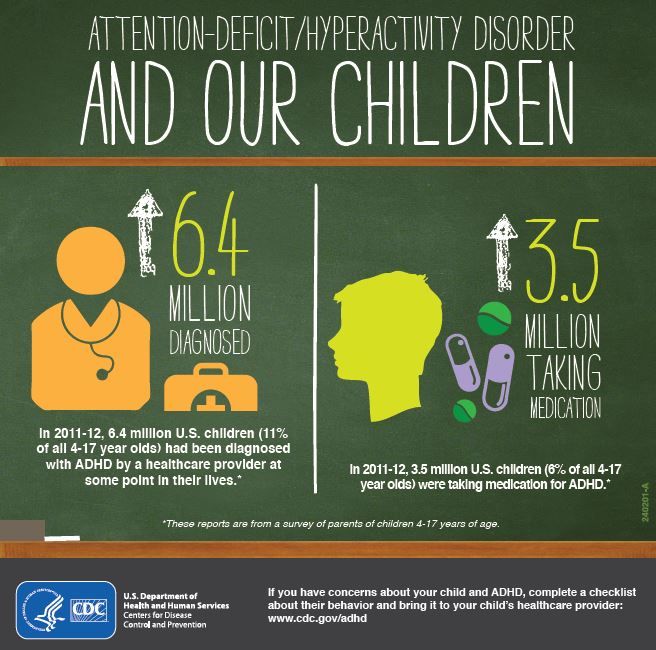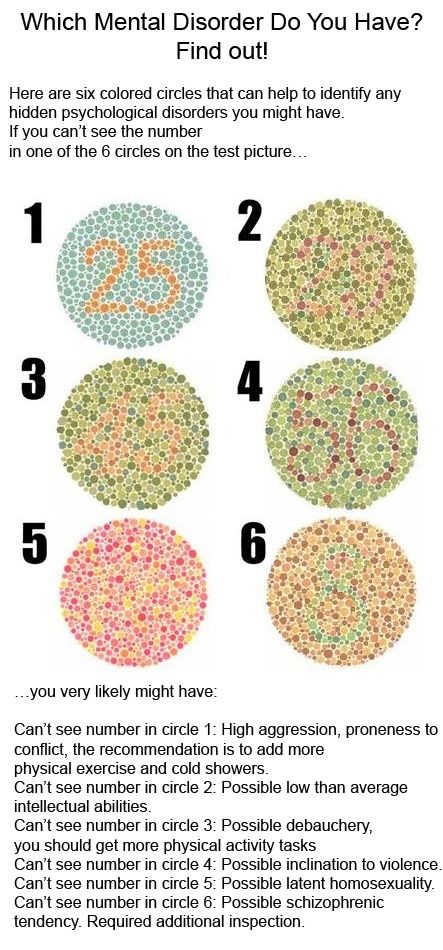Can a narcissist change for the right woman
FWLG | News-detail
Blog Details
Home | Blog | Blog Details
Florida Women's Law Group
Can A Narcissist Change?
Author: Florida Women's Law Group
Date: Jan 31 2022
Can a Narcissist Change?
Narcissist is a term that is used as insult for people we view as self-obsessed, especially in this time of the selfie and self-promotion culture. In clinical, psychological terms narcissism exists on a spectrum from mild traits to severe that results in full-blown narcissistic personality disorder.
Everyone can show some narcissism in certain situations or issues. When these personality traits become constant and a disruption to life and relationships is when it becomes a disorder. The question becomes can a narcissist change?
Narcissism Defined
There are two main types of narcissist, the grandiose and the vulnerable. The grandiose narcissist possesses the traits most closely associated with narcissism. They are outgoing, self-centered, have a constant need for attention and admiration and lack empathy. The vulnerable narcissist is more covert in their traits. They present as having low self-esteem, introverted and reserved. They both share the same core traits of believing they are superior to others, lacking empathy, refusing to accept blame and a need to be the center of attention.
Being in a relationship with a narcissist is a constant struggle and balancing act. Their manipulative actions cause a toxic environment that leaves their partners in constant fear of letting them down. If you are in a relationship with a narcissist, you may be wondering if they can change. Is it possible to change for the right relationship and for love?
Can a Narcissist Change?
The answer as to whether a narcissist can change is, it’s possible. A lot depends on their level of narcissism and if they are willing to put in the time and effort. Someone who is on the lower end of the spectrum is more likely to change than someone who has full-blown narcissistic personality disorder. If they are willing to change, and that’s a big if, therapy can help them learn coping skills and seeing things from other people’s perspective. The biggest stumbling block is the narcissist themselves. Since they view themselves as superior, rarely take ownership of their actions and do not take criticism very well, it will be difficult for them to acknowledge that they are the problem.
Someone who is on the lower end of the spectrum is more likely to change than someone who has full-blown narcissistic personality disorder. If they are willing to change, and that’s a big if, therapy can help them learn coping skills and seeing things from other people’s perspective. The biggest stumbling block is the narcissist themselves. Since they view themselves as superior, rarely take ownership of their actions and do not take criticism very well, it will be difficult for them to acknowledge that they are the problem.
Being Open to Change
In order to be successful, a narcissist will have to want to change and be open to therapy and doing the necessary work. You may be able to initially get them to therapy, but they oftentimes do not stick with it or are only doing it to appease their partner. If they feel threatened by the possibility of you leaving, they may agree to therapy as way to lure you back in with the false promise of change. Once they feel you are back in their control they will go right back to their manipulative ways.
In the Beginning They Were the Ideal Mate
When you first met your narcissist partner you probably thought all of your dreams had been answered and you had met your ideal mate. They were attentive, showered you with compliments, liked everything you liked and doted on you. This is what makes a relationship with narcissist a 100% mind game. If they were this wonderful person in the beginning than they can change and be them again, right? Nope. The person you see now is their real personality. They were putting on an act in the beginning and mirroring you to lure you in. This is the hard part to accept, remembering that person makes you think they can do it, but they are incapable of consistently putting someone before themselves.
We do not want to say never, but the possibility of a narcissist changing is slim. They must first admit that something is wrong and since they are better than everyone, they do not feel they are the ones that need to change. It is difficult to change a person’s personality and teach them empathy. The best advice for dealing with a narcissist is either learn to put up boundaries or walk away from the toxic relationship.
It is difficult to change a person’s personality and teach them empathy. The best advice for dealing with a narcissist is either learn to put up boundaries or walk away from the toxic relationship.
There is a way to successfully get out of a marriage to a narcissist. The most important step is to have a plan. It is not easy to divorce a narcissist but with proper planning it can be done. At Florida Women’s Law Group, we have experience dealing with narcissists and know how to beat them at their own game. We can help you successfully get out of this relationship and start a healthier and happier life.
Can a Narcissist Change for Love?
In This Article
If you are dating a narcissist, you already know how difficult it can be to connect on a personal level. You may feel like you’re doing all the giving and your partner is doing all the taking.
There is nothing healthy about a narcissistic relationship. They are toxic and can leave you with low self-esteem and poor mental health.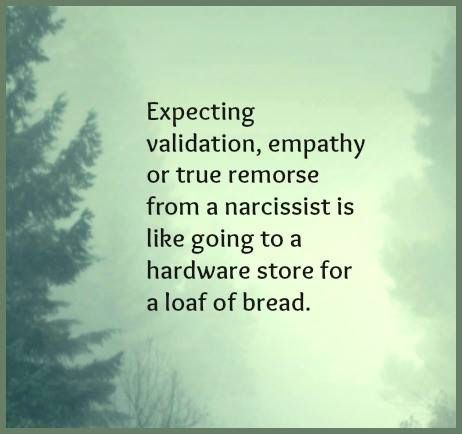
Even if you know you are in a bad relationship, your heart can’t let go. You find yourself asking, can a narcissist change for love? Can a narcissist change with therapy?
Is there any way to learn how to help a narcissist change?
Keep reading as we delve deeper into the psychology behind narcissistic behavior and learn if and how a narcissist can turn their toxic behavior around.
What is a narcissist?A narcissist is someone who only loves themselves. They put their own interests first and often gaslight their partners.
Anyone can have a narcissistic personality disorder, though males are more likely to be affected than females.
Selfish, narcissistic issues can affect every avenue of someone’s life, including their job, school, finances, and romantic relationships.
Are all narcissists the same?Are all narcissists the same?
Not necessarily. Narcissism can occur in anyone to varying degrees.
Many people have characteristics of narcissism that will not qualify for clinical diagnosis.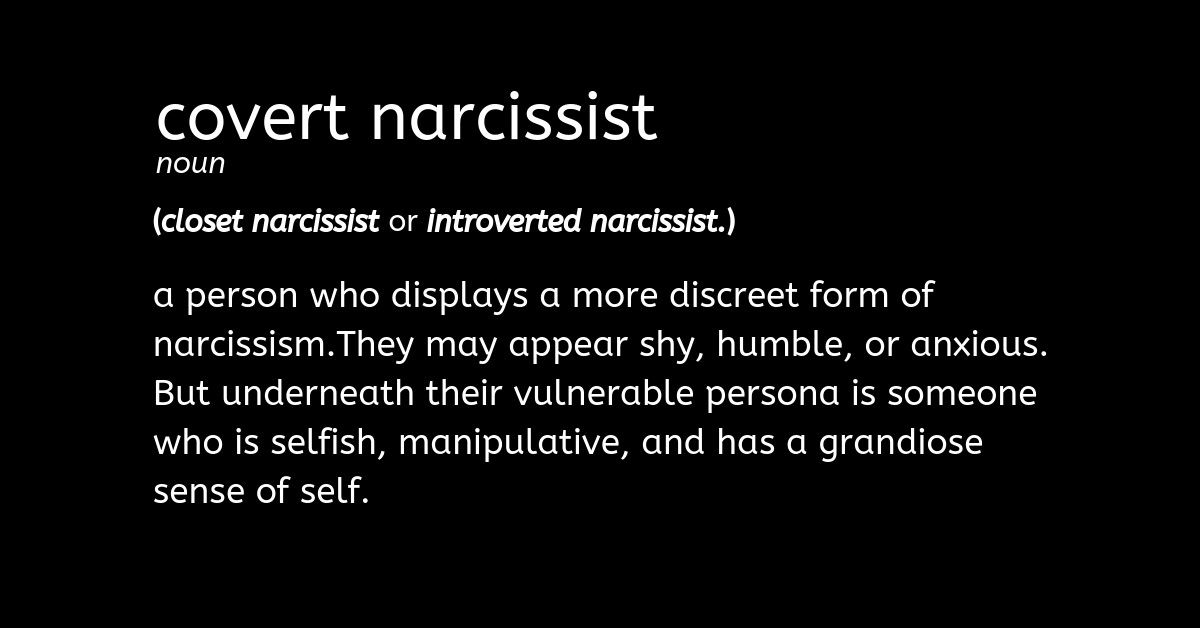
As a rule of thumb, when narcissistic behavior begins to affect someone’s life negatively, it may be a sign of true narcissistic personality disorder – a diagnosable mental illness.
To figure out whether your spouse has a narcissistic personality disorder or simply suffer from the occasional bout of “me first,” study the symptoms of severe narcissists:
- Enlarged sense of importance
- Acts like they are in love with themselves
- A constant need for praise or attention
- Entitlement
- Cocky
- Exploits/gaslights partner without guilt
- Bullies and belittles others
There are all signs of narcissistic personality disorder. Because all people are different, your spouse may exhibit more or less of these signs.
Examining the in-depth list (found below) of signs of narcissistic personality disorder will help you decipher whether your spouse genuinely has the mental disorder.
Also Try: Is My Partner A Narcissist Quiz?10 Signs of narcissism
Can a narcissist change is a question that can be addressed later. First, you need to find out if you are dating one!
So, are you confused about whether or not you are dating a narcissist?
Here are ten signs of narcissism to watch out for.
1. The beginning of your relationship was a fairy-taleA narcissist knows how to turn on the charm when they need to. When you first met, you likely thought your partner was attentive and wonderful.
They complimented you, insisted on your compatibility, and made you feel special. This is often referred to as “love bombing.”
This feels great at the beginning of your relationship, but the moment you have your first argument, your partner’s narcissistic personality begins to shine. Suddenly, nothing you do will ever be good enough for your spouse.
2. Narcissist nitpicksAt the beginning of your relationship, you probably took your spouse nitpicks as playful, maybe even flirtatious teasing.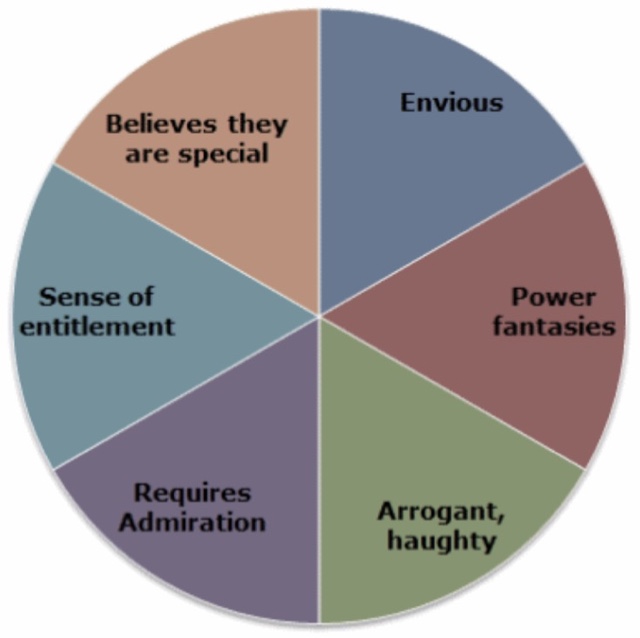
But as the relationship goes on, gentle teasing may turn into cruel comments. There are no boundaries for what a narcissist will say to hurt you.
3. They’re always talking about themselvesA healthy conversation involves a back and forth between partners.
Your partner should talk TO you, not AT you.
Opposite of this, a narcissist doesn’t care about the details of your day. They are only interested in talking about themselves.
Narcissists will take any opportunity to brag about themselves.
4. Gaslighting has become commonplaceTo gaslight means to manipulate someone psychologically, to the point that many victims begin to question their own sanity.
Narcissists will gaslight their partner to get their way.
Signs of gaslighting are:
- You are anxious around your partner
- You are always apologizing
- You no longer feel like yourself
- You are always making excuses for your partner
- You always believe that when something goes wrong, it is your fault
Narcissists will gaslight a partner to get their way or to assert their dominance in the relationship.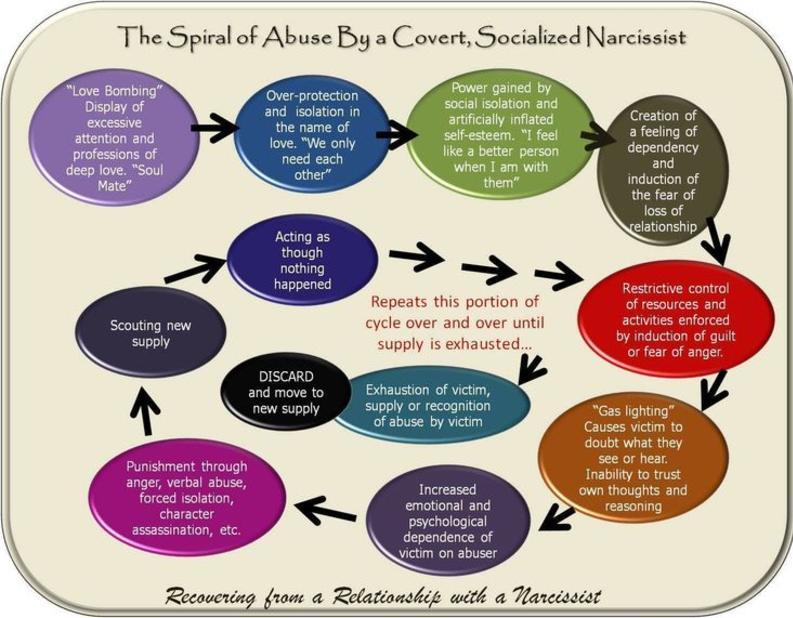
Because a narcissist lacks feelings for others, you may notice that your spouse or partner does not have many friends – or may not have many long-term friends.
6. You break up, and they revert to being wonderfulBreaking up with a narcissist will shatter their ego. After all – they’re perfect! How could you possibly want out of a relationship with someone so wonderful?
A narcissist will go into a downward spiral when you break up with them and may revert to that charming, attentive, love-bomber you met so long ago.
7. They love complimentsWe all love to be complimented every once in a while, especially by our partners, but narcissists feed off of compliments.
While a narcissist may come off as arrogant, the reality is that narcissists usually have low self-esteem and love attention and compliments.
8. They never apologizeA narcissist will not consider your feelings and therefore will never believe that they are responsible for any argument or issue you are having.
They will not acknowledge, compromise, and will not apologize for their wrongdoings. Watch out for these signs before you ruminate over the thought, can a narcissist change.
9. Narcissists lack empathyBecause narcissists’ sole focus is themselves, they lack the ability to connect to and feel for other people.
If your partner lacks empathy and doesn’t seem to care about your feelings, odds are they are a selfish narcissist.
10. They won’t commitCommonly, narcissists do not like defining their relationships. This is often because they enjoy having many parents – more people to lavish attention on them.
If your partner does commit to a relationship, you may still find them displaying disrespectful behavior such as flirting with other people or carrying on secret relationships.
Is it possible for a narcissist to change their ways?Having read the typical signs of being in a narcissistic relationship, we can now come back to our lingering question- do narcissists ever change? Can a narcissist change for love?
Yes and yes – but it’s going to take a whole lot of work.
One of the barriers to changing a narcissist is that a narcissist, by nature, thinks that they are amazing. They may not see the need for change.
Psychologist Erica Hepper believes that narcissists can experience empathy and be moved to change their ways under ideal conditions.
Empathy may not be their first response, but showing your partner what life is like in your shoes may be exactly what they need to change their ways.
If your partner truly loves you, they may be moved to take action against their toxic behavior.
Even so, change and lasting change are two different things.
What makes a narcissist change? For lasting change to occur, a narcissist must feel or do the following:
If your spouse is afraid that you may break up with them if they do not change their selfish ways, this could be the motivation they need to turn things around.
Research shows that narcissistic personality disorder has been positively impacted by psychotherapy. Only by getting to the bottom of what is driving their narcissistic behavior can they begin to address and correct problem areas.
Only by getting to the bottom of what is driving their narcissistic behavior can they begin to address and correct problem areas.
A narcissist will not respond well to a judgemental, bossy therapist. Like any other form of therapy, the patient must find someone they connect with and respect to make progress.
Related Reading: Struggles and Dramas of Borderline Narcissistic CouplesHow to know if a narcissist partner is ready to change
Studies suggest that the older someone gets, the less glaring their narcissistic behavior becomes.
But can a narcissist change for love, and how can you tell if a narcissist partner is ready for that change?
The answer is hard to know, especially if you have been encouraging your spouse to get help for some time. It may be difficult to know whether they are interested in genuine change or whether they are just saying so to placate you.
What makes a narcissist change?It depends entirely on their willingness to change. If they are motivated enough and truly love you, they are more likely to make genuine efforts to change their destructive behavioral patterns.
If they are motivated enough and truly love you, they are more likely to make genuine efforts to change their destructive behavioral patterns.
Does your partner wonder why they behave the way they do? Have they expressed interest in knowing why they are seemingly so different from friends and loved ones?
If so, it may be a sign that they are interested in changing their ways.
It may help if they get a diagnosis – but not of narcissistic personality disorder. It is common for narcissists to suffer from other disorders such as anxiety, depression, or substance abuse.
If they are diagnosed with another issue, it may encourage them to seek therapy, which will ultimately end up touching on their personality disorder.
It’s difficult to know if your partner is honest about their desire to change but try and encourage healthy communication about the matter. You know your partner better than anyone, so use your gut instinct.
Risk of changing a narcissist partnerAre there risks associated with starting the journey to change a narcissistic partner?
Of course.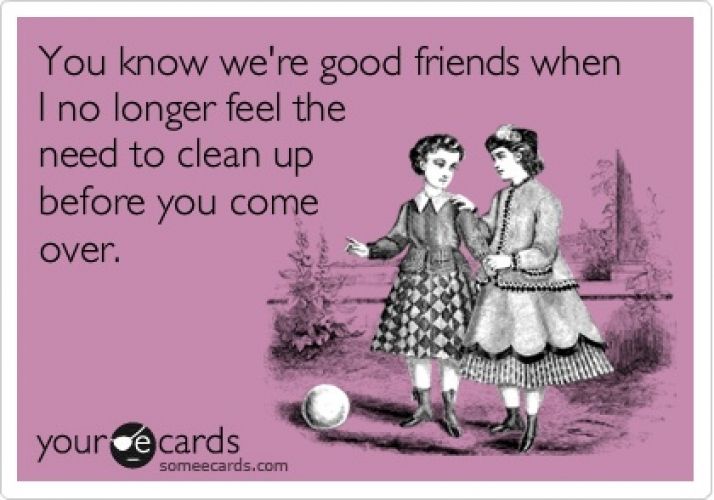 There are always risks when trying to change someone’s personality.
There are always risks when trying to change someone’s personality.
Can a narcissist change?
Yes, and here are some things you may experience when your partner begins their path to change.
-
Being let down
It can be devastating if your partner makes progress but continues to have slip-ups. It is especially heartbreaking if your partner makes no change at all and gives up on therapy. This can leave you feeling hopeless and trapped in your relationship.
Your partner is taking well to narcissist therapy and is implementing great changes. That’s good news, right?
Of course, but that doesn’t mean it isn’t difficult sometimes. Your partner’s personality may change quite a bit, and although these are good changes, you may not recognize the person you fell in love with.
If your partner continues on their journey of growth and self-discovery, they may want to focus on themselves and decide to end your relationship.
On the other hand, if your partner does not change, you may need to end the relationship.
What narcissist therapy looks like?Psychotherapy, also referred to as talk therapy, is the most popular treatment for overcoming narcissism.
Can a narcissist change with therapy?
Yes, if they are committed to the therapy. During narcissist therapy, your partner will learn how to relate to others and build empathy.
Your spouse will also learn more about themselves. They will get to the root of their untrusting, egotistical behavior.
If your partner commits to talk therapy, you should begin to see their changes ripple throughout your relationship.
They may be more engaging and communicative about your thoughts and feelings. They may start to understand you on a deeper level and overall be a happier person to be around.
There are currently no medications to help in overcoming narcissism. There are antidepressants and anti-anxiety drugs that may be used to treat other issues commonly associated with narcissistic personality disorder.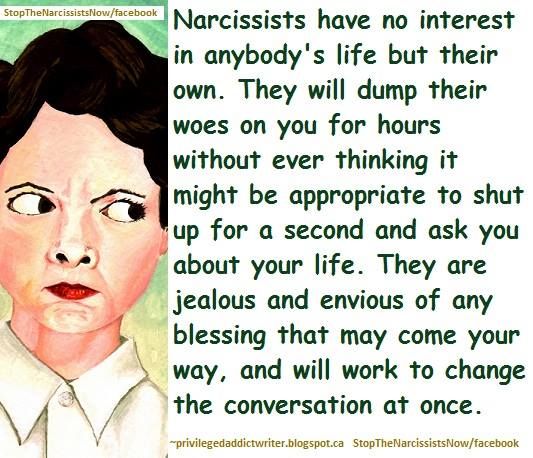
As for the partner, learning how to help a narcissist heal will involve your patience, love, and support.
Related Reading: How Do Narcissistic Parents Affect ChildrenHow to support a narcissist partner during treatment?
We have been mulling over the question, can a narcissist change. But, change doesn’t happen in a day. It is going to take time for your partner to commit to narcissist therapy.
Genuine change takes time, and waiting for your spouse to be the man or woman of your dreams can be a frustrating and agonizing process – especially if they are still displaying unhealthy behaviors toward you.
For this reason, patience is going to be your best friend when it comes to learning how to help a narcissist heal.
Learning how to confront a narcissist is another important part of the healing process. You must learn how to hold a narcissist accountable for their bad behavior.
It is essential to set boundaries and guidelines in your relationship to ensure your partner is not mistreating you.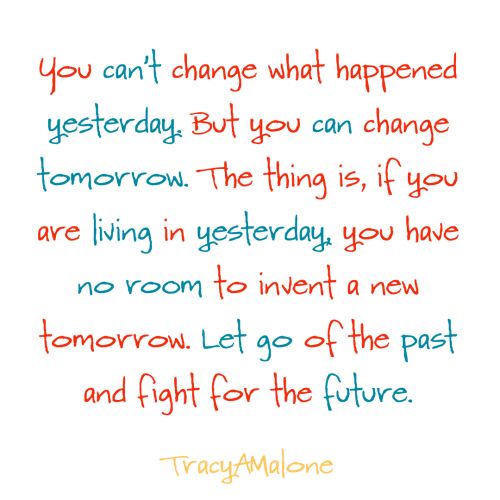
Narcissistic behavior does not always mean your spouse has a narcissistic personality disorder.
A narcissist is defined as someone who thinks mainly of themselves and uses toxic behavior such as gaslighting to get their way.
Being with a narcissistic partner may feel similar to being in an abusive relationship. All narcissists are not created equal. Their symptoms vary.
Signs of narcissism include a constant need for attention, apparent egotism, lack of interest or empathy for others, and an inability to apologize.
What makes a narcissist change?
Only a true desire to change will encourage your partner to commit to therapy and the process.
Narcissist therapy can be beneficial for those who want to banish narcissistic personality disorder.
Changing narcissistic behavior can’t be forced. People change only when they want to. Their heart must be committed to the process. Otherwise, their changes may only be temporary.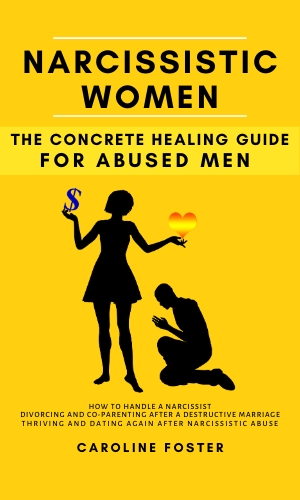
Do narcissists ever change? Can a narcissist change for love?
They can, but that doesn’t always mean they will. If your partner is making positive changes to learn how to stop being a narcissist, you will be able to see your relationship improve.
If your partner is not making changes even after going to therapy, it may be time to end your relationship.
Also Watch:
Can a narcissist change for love?
I will start talking about Dolokhov's prototypes one of these days. I barely make it. So for now, Sam Vaknin, author of Malignant Self-Love: Narcissism Revisited, continues to answer your questions. :) I thank Elena Gapich for the translation.
Question. Can a narcissist change for love? A man who has all the classic signs of a narcissist after being separated for several months has practically changed his behavior to the norm, well, almost. In any case, heaven and earth compared to what it was. If this is just a sleeping maneuver, then it has been going on for six months. So long perhaps? What about the meaning? I won't let myself eat again. Can a narcissist be re-educated if he wants to?
In any case, heaven and earth compared to what it was. If this is just a sleeping maneuver, then it has been going on for six months. So long perhaps? What about the meaning? I won't let myself eat again. Can a narcissist be re-educated if he wants to?
Answer: Narcissists are efficient machines aimed at obtaining a narcissistic resource. If they are required to change their behavior in order to ensure the availability and functioning of the resource, they will do it. This change in behavior is not manipulative or intentional. It happens automatically, at the level of a reflex.
This is not healing and does not last long. The narcissist will return to his previous behavior once he is satisfied that he is safe and has successfully "hooked" the newly acquired source of the resource.
The narcissist returns to his old sources of narcissistic resource when he has absolutely no new one. In this case, he is desperately trying to extract some benefit from his former and worked relationship. But he will never do this without the firm conviction that he can successfully extract at least a grain of the narcissistic resource (even when you respond with aggression to his actions, this confirms the fact of his existence and is a resource).
But he will never do this without the firm conviction that he can successfully extract at least a grain of the narcissistic resource (even when you respond with aggression to his actions, this confirms the fact of his existence and is a resource).
The resumption of a relationship with a spent resource source (known as "hanging" or "sucking") requires a second phase of idealization. Previously, the narcissist has devastated and neglected his former relationship, devalued the source of the narcissistic resource, convincing himself that it is of low quality, flawed, insufficient, defective, hostile, in other words, "this is not such a big loss."
Now he must abandon this assessment and again idealize his source of the resource, but without admitting that he was wrong. In order to maintain his grandiosity and grandeur, the narcissist invents a story in which he combines the phases of devaluation and re-idealization.
Examples:
Devaluation phase: I left her because she insults me.
Re-idealization phase: Yes, she may have insulted me, but it was not done out of malice.
Devaluation phase: I am smart and cannot live with a stupid person.
Re-idealization phase: Yes, she may be naive and trusting, but that makes her original and real.
The cerebral narcissist, who is inherently asexual, may become somatic for a while and have sex with the same resource source in order to give the impression that he is active, whole and "healed", thereby suggesting that he will never again refuse to satisfying basic human needs for intimacy and love. But gradually the relationship with the narcissist fades away. It's not a sharp break. This is a hidden promotion.
They coax, they beg, they promise, they convince, and in the end they manage to repeat the impossible - to confuse you once again, although you already know that you succumb to their superficial charm.
So you're back in "relationship" and hoping for the best. But this is a walk on thin ice.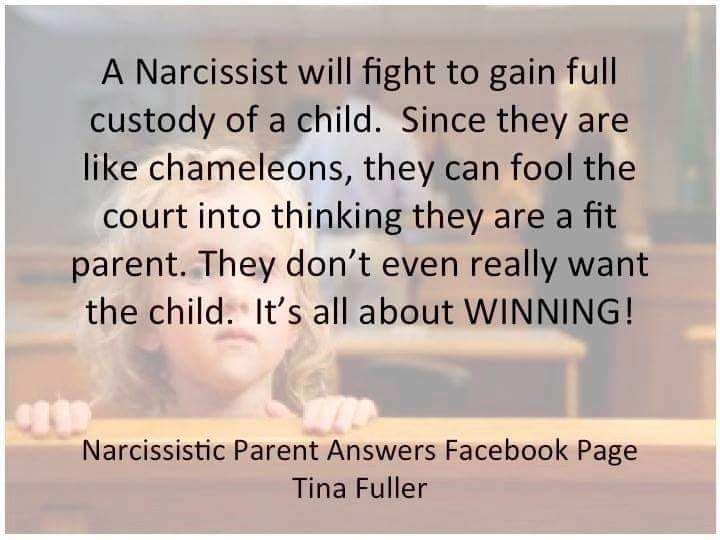 You become the epitome of submission, the ideal source of narcissistic resource, the ideal partner, spouse, or colleague. You crossed your fingers so as not to jinx your happiness.
You become the epitome of submission, the ideal source of narcissistic resource, the ideal partner, spouse, or colleague. You crossed your fingers so as not to jinx your happiness.
But how does the narcissist react to your return? It depends on what position you resumed the relationship from - from a position of strength or weakness. The Narcissist views all interactions with other people in terms of a struggle or competition in which he can win. He does not consider you as a partner. You are an opponent for him, who must be conquered and defeated.
Thus, if he is interested in you, then your return is his triumph, proof of his superiority over you and confirmation of his irresistibility.
If the narcissist perceives you as autonomous, independent and able to withdraw and abandon him, he plays the role of a sensual, loving, compassionate and empathic partner. He respects strength and delights in it. And as long as you maintain your "cold and determined" demeanor and keep him in limbo, he is more likely to behave correctly.
If you have renewed contact because you succumbed to his threats or are clearly financially or emotionally dependent, the narcissist will attack your weaknesses with force and use them to the maximum. After a short honeymoon, he will immediately resume control and revert to his previous abuser behavior.
In both cases, the theatrical behavior of the narcissist ends and the true nature of his feelings is revealed. The facade crumbles into small pieces, and under it the same soulless treacherous predator appears, which in fact it is. His jubilant admiration for himself, when he bends you to his desires and rules, his all-consuming sense of rightness, his sexual promiscuity, aggression, pathological envy and anger - everything returns with a vengeance.
The prognosis is much worse when you resume relationships after a long period of separation, when you have already begun to live your own interests, needs, desires and plans, have made independent purchases, and have begun to communicate with friends.
The narcissist cannot accept your autonomy. To him, you are simply a tool for satisfying desires or an extension of his false self. He is outraged by your requests for money, is insanely jealous of your friends, refuses to listen to your desires or compromise, is jealous and devalues your achievements.
In the end, it seems to him that the very fact that you survived without his constant presence deprives him of a much-needed narcissistic resource. He hastily goes through cycles of idealization and devaluation. Insults you, humiliates you in public, threatens you, destabilizes you with unpredictable behavior, and uses others to intimidate and subdue you ("abuse by proxy").
So you are again faced with an inevitable choice. Walk away again, undoing all the emotional and financial investment you've already made in trying to resurrect the relationship - or continue to live with daily abuse?
All this is well known to you. You've been through this many times before. But that experience doesn't make the situation any less nightmarish...
But that experience doesn't make the situation any less nightmarish...
Tags: vaknin, idealization, narcissistic resource, narcissistic personality disorder, devaluation, parallel victims, ping, sugar show
Blogger Tanya Tank about abusers, narcissists and pick-up artists — Realnoe Vremya
Society
07:00, 02/12/2020
Author of the book "Fear, I'm with you" - about abuse and loneliness of women after 30
“We felt bad in the relationship, but didn't understand why. After all, the husband does not smoke - does not drink - everything is in the house, and the wife does not get out of depression, she is all sick, she has grown fat and cannot lose weight. Probably, "he's pissed off with fat"? But now it has become clear what is going on behind the happy facade of such families - in most cases this is a systematic abuse, often "intelligent". Well, you call a rapist a person who suddenly falls silent for a week? Meanwhile, Dostoevsky told us how Meek came out of the window after a three-month “educational” boycott of her husband,” says Tanya Tank, blogger and author of the trilogy “Fear, I’m with you” about the intricacies of abuse. In an interview with Realnoe Vremya, she spoke about the topic of moral violence, narcissism and the problems of loneliness of women over 30, which she studied on living examples.0003
In an interview with Realnoe Vremya, she spoke about the topic of moral violence, narcissism and the problems of loneliness of women over 30, which she studied on living examples.0003
“Having experienced abuse at the age of 15, for many years I was looking for an answer to the question, what was it, in fact?”
— Tatyana, how long has the word “abuse” been used in Russia?
— Not so long ago, about seven years ago. For us, abuse, or moral violence, abuse, bullying is a relatively new concept, because until recently, many believed that violence is when a fist is punched in the face or kicked in the kidneys. Even rape was not always regarded as unambiguous violence. Like, if this is a wife or a mistress, then what kind of rape is this? Or if “a woman got drunk” - it means that it’s not rape either, but she herself is to blame for badly beating herself up. Or if the victim did not actively resist (out of a sense of self-preservation), it means that she herself liked it all.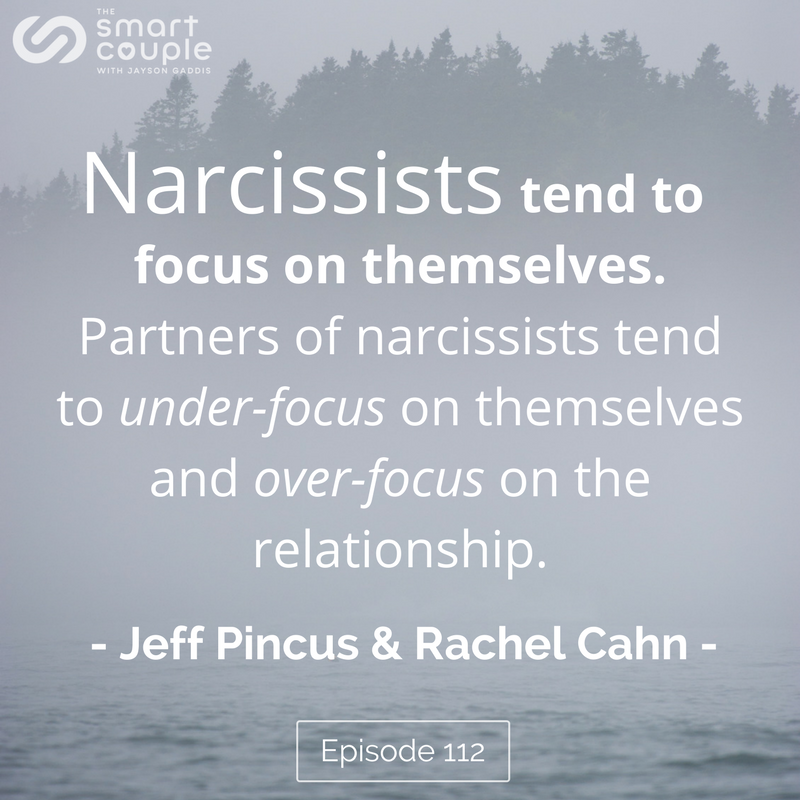
And, of course, we didn't know and didn't even think about such things as gaslighting, boycott, "water torture", skillfully applying which can crush a person morally, and in the long run, physically.
At the same time, we felt bad in the relationship, but did not understand why. After all, the husband does not smoke - does not drink - everything is in the house, and the wife does not get out of depression, she is all sick, she has grown fat and cannot lose weight. Probably, "he's pissed off with fat"? But now it has become clear what is going on behind the happy facade of such families - in most cases this is a systematic abuse, often "intelligent". Well, you call a rapist a person who suddenly falls silent for a week? Meanwhile, Dostoevsky told us how Meek came out of the window after a three-month "educational" boycott of her husband.
— But didn't the Russian language have words for such phenomena before?
— I don't know what it was called in psychology, but in real life they used to say about such people: tyrant, despot.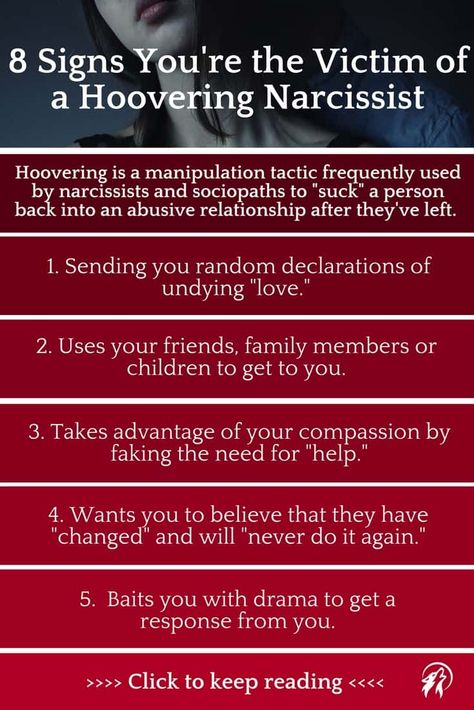 And this phenomenon was widespread, including in aristocratic families. Pushkin's daughter, Natalya, did not come out of bruises, until after 13 years information about the atrocities of her husband did not reach Alexander II. And Nicholas I took an active part in the family drama of General Bezobrazov, removing him from St. Petersburg to a hot spot and allowing his wife Lyubov to live separately from her husband. The general was pathologically jealous and began to "miracle" immediately after the wedding, but after he threw himself at his wife with a knife, she already threw herself at the feet of the emperor ... Pre-revolutionary psychiatrist Vladimir Chizh called his essay on Arakcheev "the psychology of a villain." Here is another definition of an abuser.
And this phenomenon was widespread, including in aristocratic families. Pushkin's daughter, Natalya, did not come out of bruises, until after 13 years information about the atrocities of her husband did not reach Alexander II. And Nicholas I took an active part in the family drama of General Bezobrazov, removing him from St. Petersburg to a hot spot and allowing his wife Lyubov to live separately from her husband. The general was pathologically jealous and began to "miracle" immediately after the wedding, but after he threw himself at his wife with a knife, she already threw herself at the feet of the emperor ... Pre-revolutionary psychiatrist Vladimir Chizh called his essay on Arakcheev "the psychology of a villain." Here is another definition of an abuser.
I myself, having experienced abuse at the age of 15, have been looking for an answer to the question for many years, what was it, in fact,? It was such an extraordinary and traumatic experience. I puzzled: what kind of person is this, what motivated him and could I have avoided terror if I behaved “correctly”?
In search of answers for more than 20 years, I have read mountains of psychological texts - from pop science to venerable authors. I read about sadists, tyrants, explosive and epileptoid psychopaths, and all this was interesting and informative, knowledge was accumulated, but ... did not add up to a coherent concept. And only when I discovered the topic of abuse, malignant narcissism and psychopathy, the puzzle finally took shape. Now for me there are no special mysteries in this topic.
I read about sadists, tyrants, explosive and epileptoid psychopaths, and all this was interesting and informative, knowledge was accumulated, but ... did not add up to a coherent concept. And only when I discovered the topic of abuse, malignant narcissism and psychopathy, the puzzle finally took shape. Now for me there are no special mysteries in this topic.
People try to "diagnose" their abuser. Who is a narcissist or a sociopath? Or "just" a traumatic? But the difference is very small and certainly does not diminish the damage caused to us by the abuser, and does not give us hope about improving relations...— Let's call them destructive people? They are all pretty much narcissists. As the humanist philosopher Erich Fromm writes, narcissism is the essence of any severe personal pathology.
But now there is a lot of confusion in terms. People try to "diagnose" their abuser. Who is a narcissist or a sociopath? Or "just" a traumatic? But the difference is very small and certainly does not diminish the damage caused to us by the abuser, and does not give us hope in terms of improving relations.
..
It seems to me that meticulously finding out the type of your abuser is the wrong direction of search. Yes, they are all largely or very largely daffodils! We, non-specialists, do not need to be able to make diagnoses, it is important for us to learn to see manifestations of violence and quickly wrap up with such relationships, and not hang in them for years or decades ... until death separates us.
« I can boldly add Saint-Exupery, Yesenin, Lermontov, Bryusov to the list of destructive people»
— Well, okay. Can you give examples of destructive people? So that everyone immediately understands what it is about.
— In Anatomy of Human Destructiveness, Fromm analyzes in detail the personality of Hitler as a malignantly destructive person, an example of a clinical case of necrophilia (meaning: hatred of the living). You can also read his essay on Stalin there. Vladimir Chyzh has an interesting analysis of not only the “villain” Arakcheev, but also the “fanatic” Archimandrite Photius.
Feel free to add Saint-Exupery, Yesenin, Lermontov, Bryusov to the list of destructive people.
Well, for clarity - well-known images from the world classics. This is the reckless and vicious Anatole Kuragin. This is the envious and evil Dolokhov, “the most tender son and brother” (and this is hammered into our heads from school!), this is the “blood pit” Judas Golovlev, this is Parfen Rogozhin, this is Vassa Zheleznova, this is Viscount de Valmont, Heathcliff and ... You won't believe it, darling Mr. Rochester!
— What does toxic behavior mean and what harm can it cause?
— Any violation of a person's personal boundaries can be called toxic behavior. We can all casually, without realizing it, offend others. And to do this is a couple of trifles, because we are surrounded by a lot of traumatized, neurotic people, and we ourselves are often very vulnerable.
However, not all toxic behavior is abuse. Let's say we gave a friend an opinion about her boyfriend, although she did not ask us about it.
Have we violated its boundaries? Violated. But if a friend correctly points us to this, we will take note and will not repeat this again.
But if, despite the boundaries outlined for us by another person, we continue to attack them (in our example, we bombard a friend with unnecessary opinions about her hairstyle, work, lifestyle, figure), then this will already be an abuse. That is, all abuse is toxic behavior, but not all toxic behavior is abuse.
But it was me who gave mild examples of toxic behavior that are widespread among us, in which many of us do not see anything “thing” or, moreover, see things that are not in it: friendly care, “who do you need but a friend will tell the truth." But "honesty" can be very hurtful.
Now let's imagine an average woman who regularly hears from her husband that her figure is not ale, her face also let us down, and "old women" at 40 no longer wear such blouses. And her jellied fish is disgusting, and she is a useless mother, and she is kept at work out of pity.
A few months or years of such depreciation - and now we see a gray, wound up, sick woman with a self-esteem below the Mariana Trench, who sincerely considers herself worthless, ugly and who looks at her girlish photos with bewilderment: is this really me? Was I ever like this?
The abuser has occupied her personality, destroyed and continues to destroy her. And if the victim of abuse does not push off the bottom in time, then the finale can be tragic: a serious illness, untimely death, suicide, alcoholism.
If the victim of abuse does not push off the bottom in time, then the ending can be tragic: a serious illness, untimely death, suicide, alcoholism— How to “push off the bottom” and get out of a toxic relationship?
- Having recognized violence, it is worth leaving the relationship as soon as possible. And this applies not only to romantic relationships, but also friendship, cooperation, and family relationships.
Usually, at first, we still try to reach an agreement with a significant person, to somehow understand him, to improve relations.
But if you fight like a fish on ice, and they don’t want to hear you ... If they allegedly listen to you, but nothing changes ... If the abuse intensifies, this is a signal that you are unable to change anything in these relations, and you have three ways out : to live a chronically humiliated victim, to get sick, to suffer, to hate oneself, to become a pale shadow of the aggressor - “to become narcissistic” (like the heroine of the “Bitter Moon”). And a healthy option: to leave beautifully and live happily.
Having decided to leave, it is necessary to break contact decisively and irrevocably. Unfortunately, few people succeed. Because abusers reappear in the lives of victims, and many manage to confuse them with false remorse, imputation of guilt, divorce for pity, threats...
— Why is there such a fuss around the topic of domestic violence right now? Why was there so much talk about this before?
— Maybe because there is too much violence? Because narcissism has become a problem on a planetary scale and it threatens the security of all mankind? Moreover, by saying this, I already mean physical survival, because the surge of terrorism, all these shootings in schools and offices are a direct consequence of “small”, supposedly not significant family problems for society.
After all, a kind, constructive person will not come to work with a "Kalash", but an embittered, hating everyone, painfully selfish, deeply traumatized narcissist from childhood - yes.
“Women 'get off' mainly on children and women. They use both physical and moral violence”
— An abuser, a domestic rapist in the mind of an average person is, as a rule, an aggressive man. Is it really? How prone to abuse, domestic violence against children and a woman's husband?
— Violence is different. And I often emphasize that the abuser does not know gender, age, nationality, social level. Men tend to be more "active" abusers. I don’t remember cases when a woman cut off her husband’s hands, beat him to the state of a “vegetable”, doused her lover with acid. And when we watch a documentary about some Saltychikha, we shudder with amazement and disgust.
However, abuse is like an iceberg. We see only a small part of it, and these are just these shock cases that everyone knows about.
And how many "sorrows under dark water"? Nothing prevents - neither men nor women - from doing abusive affairs on the sly, behind the facade of a "prosperous family", under the sign "children's friend and philanthropist."
Women "come off" mainly on children and women. They use both physical and moral violence - boycotts, inadequately high demands, depreciation. An abusive mother can be indifferent to the child, while remaining socially approved.
And the mother, who “lives for the sake of a bloody woman”, arouses universal admiration even more so. But overprotection, overcontrol is a form of abuse, and it breaks the child's personality thoroughly. Let's remember Sergey Mikhalkov's children's poem about mother's Vitya, father's Vitya, who lives like a mimosa plant in a botanical garden.
An abusive woman can single-handedly abuse a child, sometimes even endangering his life. Or she can play along with a destructive husband in this - out of fear of him, out of a desire to “curry favor” and get a break, because of chronic fatigue and emptiness (everyone who has been around a toxic person for a long time has it).
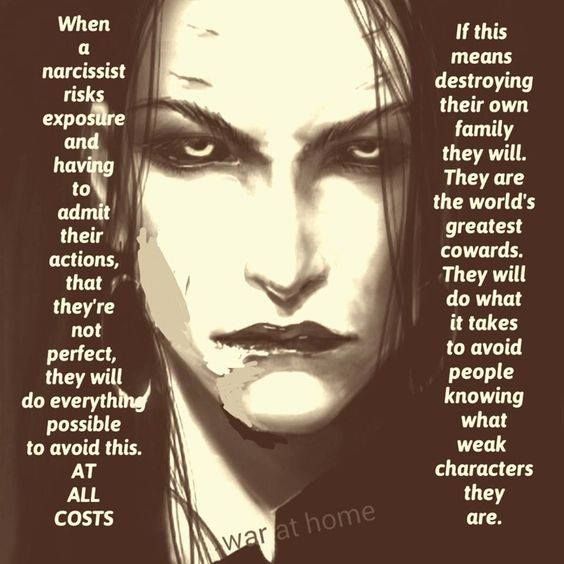 Abuse is like an iceberg. We see only a small part of it, and these are just these shock cases that everyone knows about. And how many "sorrows under dark water"?
Abuse is like an iceberg. We see only a small part of it, and these are just these shock cases that everyone knows about. And how many "sorrows under dark water"?Tell me about toxic parents. How to recognize them?
— Usually, the understanding that you grew up in a toxic family comes in adulthood. Our social prohibitions against condemning parents are too strong. It cannot be doubted that “childhood is a golden time” and that parents necessarily love us, because they cannot but love. Imagine with what cognitive distortion a child grows up, who was beaten and rotten in every possible way, but who is offered to shut up with his claims, and sing praises to his parents and “repay the debt”.
Alas, parental dislike is much more widespread than we think. Often parents do not love, but raise “comfortable”, “obedient”, “successful” children who could be proud of, who “will glorify the surname” ... Strange, right? Why shouldn't a parent be proud of his achievements, if he certainly wants to be proud? Why are they trying with all their might to adapt the child for this role?
What society interprets as parental love often turns out to be forms of codependency, when children and parents create a pathological symbiosis in which they live all their lives.
That's why a 40-year-old boy leaves another girlfriend - her mother did not like her. That's why a 50-year-old girl is ready to crawl on Saturday at five in the morning to her mother's cottage - because she is a "good daughter." There is no timely separation of parents and children, and an adult according to the passport remains a psychological child. And this kid has his own kids, works a job...
And there are many such people around us. I think this is the cause of many social problems: the increase in crime, the lack of good employees, alcoholism, depression, social aggression. No matter what problem you hit, you can't go wrong.
- How to end relationships with toxic parents?
— Normally, a child should separate psychologically from his parents by the age of 18-20. But for many, this separation never happens. Children who have not grown up psychologically, at best, begin work on separation at 25, 30, 40 or more years. Those who have recognized the damage caused by toxic parents sometimes distance themselves from them, and if the parents are very toxic, demanding, shamelessly clingy, and even dangerous, they even break off relations with them.
Toxic parents are a huge topic, and I'm currently writing a book about it.
“In five years I have published no more than ten stories on the blog from the point of view of men”
— Do men who are suffering from abuse sometimes come to you for help? Can you give examples?
— Men write to me mostly from those who reasonably suspected a narcissist. But those who have suffered both from women and in homosexual unions are also converted. In the five years that I have been running a blog with anonymous stories on LiveJournal, I have published no more than ten stories on behalf of men there. And some of them are ambiguous, as I understand now, when my knowledge of abuse has expanded significantly.
Of course, this does not mean that men do not suffer from abuse. Of course they suffer. And from the pressure of their parents, and from the pressure of the bosses ... However, they have a lot of false shame to talk about it as openly as the women began.
And often they do not have the ability to introspection and self-understanding, like many women.
By no means do I want to say that men are dumber, but the fact that their feelings and emotions are buried under a thick shell, under which it is difficult even for them to crawl under, is, in my opinion, a fact. And these are the poisonous berries of raising boys under the motto "boys don't cry, it's not cool."
Let me mention a trick that abusers sometimes use. A man writes me a story where he exposes himself as a victim of a narcissistic wife. But abusive "ears" are hard to hide. Then he hit her several times, because she "deserved" and "brought it down." Then he mocked his mistress with “pauses” (that is, boycotts) in order to “see how much she would be humiliated.” One such “Freudian slip” is enough to suggest with a high degree of probability what the true alignment of forces is.
Everyone can get into abuse. But to hang in it for a long time is only a person with considerable personal problems, prone to codependency and with masochistic attitudes— What about the fact that the words “abuse” and “toxic relationships” people can simply cover up their unwillingness to change, stop being selfish and build family relationships How to understand that this is not self-deception and not flight, immaturity, not blaming everything on some “abuser”?
- The topic is very extensive .
.. And the answer, I think, is simple, in short. Anyone can get into abuse. But to hang in it for a long time is only a person with considerable personal problems, prone to codependency and with masochistic attitudes.
And, unfortunately, the majority of such people. We receive this baggage from toxic parents and society, which form a distorted picture of the world for us, where love must be earned and suffered, where to slap the table and switch to bass is “the behavior of a real man”, and being “wise and understanding” is a strategy " the right woman." Where you always need to be “perfect” and “go through life laughing”, be “efficient” and positive. Where to talk about your desires - selfishness, to reject mistreatment - "want too much."
Therefore, we often endure abuse and cannot get out of it because of our immaturity. Is it possible for a child to solve such a problem?
But this does not change the fact that this immature person is really being abused, suffering and needs at least non-judgment.
We are very fond of operating with the word “guilt”. Just an itch to appoint someone to blame. A woman publishes a photo of the beatings, she is immediately asked: why are you like this? You might think there is something for which you can beat a person. I think that it is more humane and appropriate to talk about the trouble, but not about the fault of the injured person.
By the way, for many of my readers, it is the experience of serious abuse that becomes a powerful impetus to self-study and work with a psychologist. The process is long, often painful, but so many “powdered” abscesses and smeared scars are opened that people really change a lot and come to psychological maturity.
“Solo life (and not “terrible” loneliness) is a global trend”
— You communicate with a large number of women from different cities. There is a lot of talk these days about the problem of single women over 30. What do you think about it?
- This is no longer a problem.
In general, solo life (and not “terrible” loneliness) is a global trend. And what will be your life without a partner - loneliness, outcast or solo life - depends on your mental health and order in the worldview.
It is normal for a person to strive for another person. But for a healthy, psychologically adult person, this “active search” will not be an obsession. It will simply be interesting and joyful to live, open to life and people. He doesn't want to stick to anyone. He is not bored, there is always something to do. He enjoys solitude as much, if not more, than communication. And, as a rule, next to him are also good people.
The one who cannot live without merging with another, without co-dependent relationships, who is so afraid of the mythical “pressure of society” – of course, is terribly afraid of loneliness, and the further, the stronger.
It is normal for a person to strive for another person. But for a healthy, psychologically adult person, this “active search” will not be an obsession.It will simply be interesting and joyful to live, open to life and people
— Do your readers consider loneliness their problem?
- Smaller part. Others hope to meet a good man and start a family, others consider it optimal for themselves to meet someone without living together, others completely exclude close communication with men from their lives.
But do not rush to feel sorry for them. Those whom I know are doing very well: they raise children, study, open businesses, earn good money, travel, have fun ... Often they do everything that they could not afford in a relationship with a man. And they really like the new quality of life.
— What problems can the path of loneliness create for a woman in the future?
— Again, it all depends on the woman herself. If you feel like a loser, "illiquid", then, of course, if you do not work on your worldview, the problem will intensify over the years.
If a woman loves and appreciates herself, has a taste for life, communicates with life in an adult language, for her such a life becomes a source of joy rather than grief.

And we must always remember: with a high degree of probability, each of us will experience moments of loneliness in life. Nothing is 100% stable. Even if we have a husband, we can separate from him, become a widow. The parents are also dead. Children leave the parental home, and this is normal. Therefore, it is worth learning in advance to appreciate loneliness and consider it not a curse, but an interesting - temporary or not - life experience.
— Is such a phenomenon as a pickup truck common in Russian society today? And how to recognize a pickup artist?
— By the way, people often ask me: “Maybe he’s just a pick-up artist, not an abuser?” A pickup artist is always an abuser! After all, what is a pickup truck? The conscious use of manipulative tactics to get a woman to bed quickly and cost-effectively. Moreover, a special chic - so that she herself “didn’t understand how it happened,” she sacrificed her principles about the speed of rapprochement.
To make a girl a slave, completely subservient - that's the goal of a pickup truck. That is, we are talking about deliberate deception!
Interestingly, sex is the tenth thing for a pick-up artist. The main thing is a new tick in the list of "victories". This is necessary to pump up unhealthy self-esteem, which is usually underestimated, sometimes prohibitively high and never adequate.
I admit that not every pickup artist is a seasoned abuser. Young fragile minds can temporarily fall under the influence of the "masters" of the pickup truck, inspired by their false irresistibility. Key word: "on time". A more or less mentally healthy person understands that one cannot use others as a simulator for pumping up one's ego. In principle, he is disgusted by the idea of a location bought by manipulation. And his self-esteem does not require any pumping. It is stable and has nothing to do with the number of "laid" ladies.
Photo instagram.com/tanja.tank“My goal is not to persecute abusers, as some people attribute to me”
— How did you yourself come to this topic of abuse? What does your book “Fear, I am with you” teach and how does it help?
- I have already said that I have been interested in the topic for 30 years, after I had a close conversation with a similar person at 15.
In my trilogy "Fear, I'm with you" I tell people in an accessible way, according to what laws abuse develops in a relationship, what the abuser does during the "Tests of the pen", and what - at the stage of "Juicer".
I gave each stage of the destructive scenario an author's name and literally illustrated each of my words with fragments from the stories of my readers. That's why the abusers I've described are from real life and not "from a textbook." They are easily recognizable.
My goal is not to prosecute abusers, as some people say I am. No. I help people understand the topic of violence, learn to guess the “cruel romance” “from three notes” and quickly cut off such contacts.
And of course, if it were not for the hundreds or perhaps thousands of stories sent to me by readers, I would not have been able to explore this topic as deeply as such rich practical material allowed me to. Therefore, “I help” and “I teach” is probably a loud word. We all, me and my readers, help each other and teach each other.



